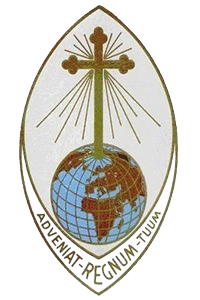Our Institute is a religious Congregation of Pontifical Right, established to collaborate in Christ’s work of salvation. We live a fraternal life in common, following the poor, chaste, and obedient Christ.
Contemplative in action, our missionary outreach is enlivened by the Eucharist, the source and summit of evangelization, in the missionary attitude of Mary, servant of the Lord. The encounter with Jesus in the gift of the charism and spirituality, transmitted to us by Mo. Caterina makes us missionary disciples. We live our lives in the Spirit in different contexts and on three continents.
Living the “yes” of Mary, the Handmaid of the Lord
“… Desiring to respond in a wholly special way to the voice of Jesus and to see fulfilled the desire of the Church that she be made one fold under one shepherd, we gathered together to consecrate our lives as Servants of the Missions.” (Short Rule, 1923)
For us, being Servants means, first and foremost, a missionary service in the style of Fiat: a spirit of giving and adaptation, joy and simplicity, and humility. Mary is, in fact, a model of apostolic and missionary love for universal, borderless motherhood: conceiving and carrying Jesus within herself to give Him “with an apostolic ardor to souls” (Mo. Caterina).
Sharing the lives of Missionaries
We want to live our lives in an attitude of sharing with missionaries “ad gentes.” Courage, sacrifice, and apostolic dedication are the virtues we are called to live out in our service to the mission, offering joys, sufferings, detachments, and hardships in union with the missionaries.
Animated by the Eucharist
Our love for the mission springs forth and receives impetus from the Eucharist, the source and summit of all evangelization. The Eucharistic spirit animates and enlivens our entire spiritual and apostolic life.
From the contemplation of the Eucharistic mystery, in which, in addition to Christ, we experience communion with the Father in the Spirit, we draw strength to witness the Lord’s presence among people so that all may participate in the banquet of the Kingdom.
